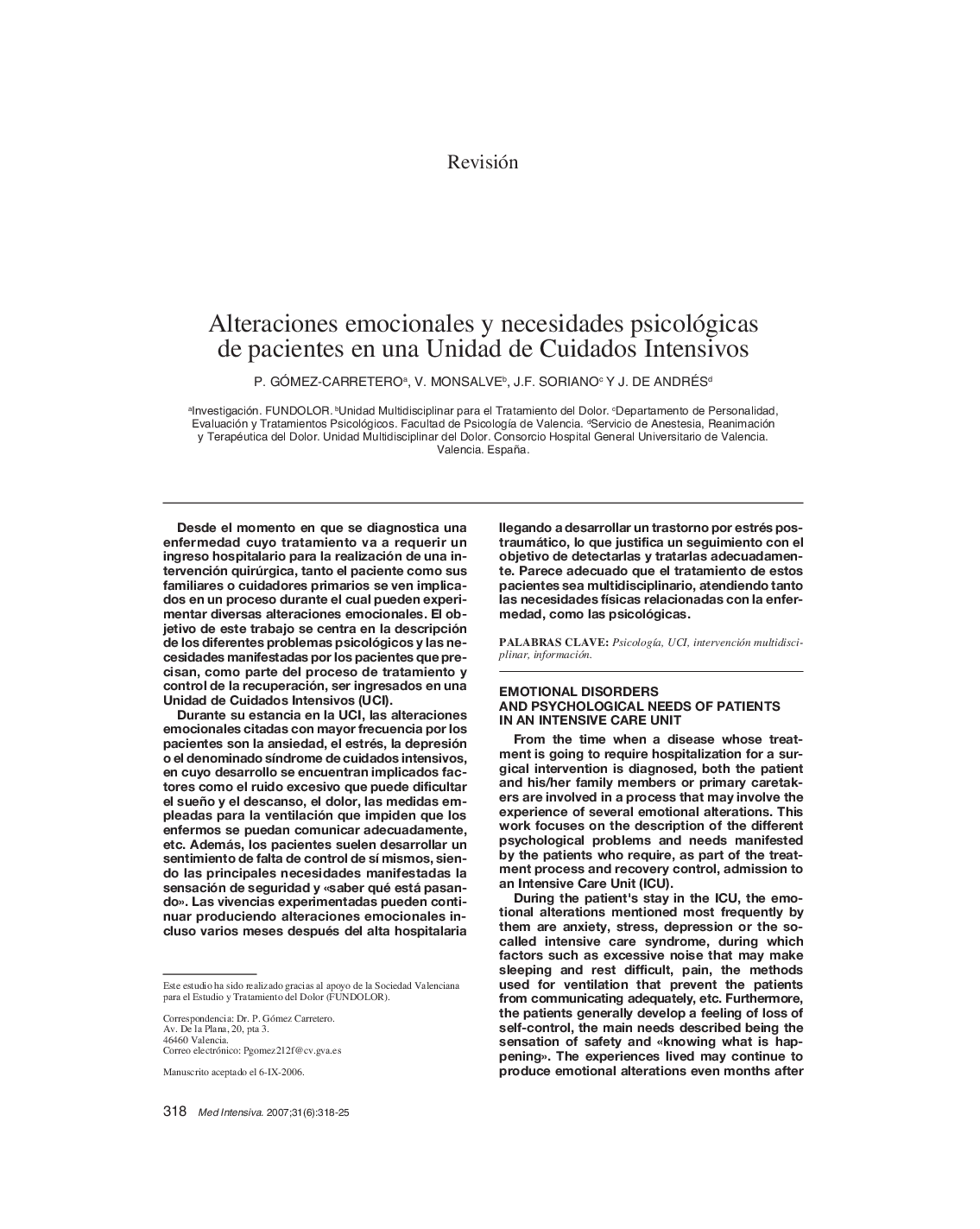| Article ID | Journal | Published Year | Pages | File Type |
|---|---|---|---|---|
| 3113803 | Medicina Intensiva | 2007 | 8 Pages |
Abstract
During the patient's stay in the ICU, the emotional alterations mentioned most frequently by them are anxiety, stress, depression or the socalled intensive care syndrome, during which factors such as excessive noise that may make sleeping and rest difficult, pain, the methods used for ventilation that prevent the patients from communicating adequately, etc. Furthermore, the patients generally develop a feeling of loss of self-control, the main needs described being the sensation of safety and «knowing what is happening ». The experiences lived may continue to produce emotional alterations even months after hospital discharge, with the development of a Posttraumatic Stress Disorder. This justifies a follow-up in order to detect them and treat them adequately. It seems to be appropriate for the treatment of these patients to be multidisciplinary, attending to both the physical needs related with the disease as well as the psychological ones.
Related Topics
Health Sciences
Medicine and Dentistry
Critical Care and Intensive Care Medicine
Authors
P. Gómez-Carretero, V. Monsalve, J.F. Soriano, J. de Andrés,
